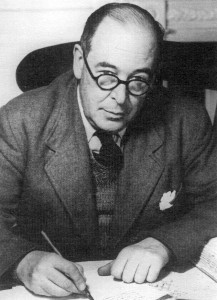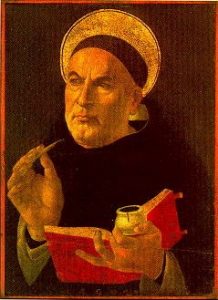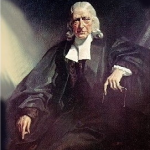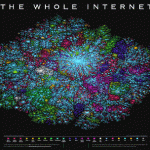The Secondary Role of Theology
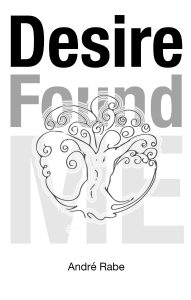 In the Introduction to his book Desire Found Me, André Rabe makes the following comment:
In the Introduction to his book Desire Found Me, André Rabe makes the following comment:
God and our concepts of God are not identical. God seldom, if ever, reveals concepts about himself. He simply reveals himself. Such encounters deeply transform our concepts.
Just so. Our concepts of God are conclusions people have reached from the way in which God has revealed God’s self. God does not send a theology text to the human race. God encounters people in the midst of their lives. On the basis of these experiences, conclusions are drawn. Philosophy — that is to say, our general knowledge of logic and of the world and the way it works — is drawn in to fill out the picture. But, the encounter is first.
Christians believe that the ultimate revelation of God is the Person of Jesus Christ — often called by theologians “the self-revelation of God.” But, Christ’s coming into the world was for the purpose of human redemption — for more than for human information.
Remembering all of this helps to keep theology in its proper place. Knowing God is more important than knowing about God. And, our knowledge of the world — and of God and God’s will — continually grows and develops. Thus, theology must always grow and develop. As I said yesterday, theology is always provisional.
This keeps theology in its proper place. As a servant, it is helpful. As a master, it is not.
There is an analogy — which I think I first found in C. S. Lewis’s Mere Christianity somewhere — that I have found helpful. Theology is like a map. Christianity is the journey of faith in Christ. It is helpful to have a map for the journey. It can tell us what to expect, how to conduct our journey and so forth. But, it is only helpful if we are actually on the journey. Possessing a map is no substitute for taking the journey. Now, a better map is more helpful than a poor one. A bad map may lead us in the wrong directions, or encourage us to make the wrong assumptions about the journey. It’s role is to help us in the journey.
What we think matters, and can shape our expectations and behaviors. But, faith, service to Christ and others, the means of grace come first. Theology can help when kept in a subordinate role. When theology is too rigid — or when theology itself becomes the focus — it becomes a problem.
And, theology — even the very best theology — is no substitute for encountering God. Prayer and worship and meditation of Scripture — and all the various means of grace — are at the heart of the Christian life. The knowledge of theology can never be a substitute for any of them. Our hearts cry out “Make me understand the way of your precepts, and I will meditate on your wondrous works” (Psalms 119:27 NRSV) — and a detailed, abstract discussion of the (alleged) attributes of the Almighty will in no way satisfy us. Nor should it.
I think this is the heart of the old story that is told about Thomas Aquinas. The story is that Thomas, at the end of his life, renounced all of his great and brilliant works of theology. Here is the account from Wikipedia:
In 1272 Thomas took leave from the University of Paris when the Dominicans from his home province called upon him to establish a studium generale wherever he liked and staff it as he pleased. He chose to establish the institution in Naples, and moved there to take his post as regent master.[39] He took his time at Naples to work on the third part of the Summa while giving lectures on various religious topics. On 6 December 1273 at the Dominican convent of Naples in the Chapel of Saint Nicholas after Matins Thomas lingered and was seen by the sacristan Domenic of Caserta to be levitating in prayer with tears before an icon of the crucified Christ. Christ said to Thomas, “You have written well of me, Thomas. What reward would you have for your labor?” Thomas responded, “Nothing but you, Lord.” After this exchange something happened, but Thomas never spoke of it or wrote it down. Because of what he saw, he abandoned his routine and refused to dictate to his socius Reginald of Piperno. When Reginald begged him to get back to work, Thomas replied: “Reginald, I cannot, because all that I have written seems like straw to me”[51] (mihi videtur ut palea). What exactly triggered Thomas’s change in behavior is believed by Catholics to have been some kind of supernatural experience of God. After taking to his bed, he did recover some strength.
In the light of encounter with God all our theology looks like straw — like foolishness. What can we say? Like Job, we cry out: “Therefore I have uttered what I did not understand, things too wonderful for me, which I did not know…. I had heard of you by the hearing of the ear, but now my eye sees you; therefore I despise myself, and repent in dust and ashes.” (Job 42:3-6 NRSV).
G. K. Chesterton reflects on this incident from the life of Thomas Aquinas:
Nobody supposes that Thomas Aquinas, when offered by God his choice among all the gifts of God, would ask for a thousand pounds, or the Crown of Sicily, or a present of rare Greek wine. But he might have asked for things that he really wanted: and he was a man who could want things; as he wanted the lost manuscript of St. Chrysostom. He might have asked for the solution of an old difficulty; or the secret of a new science; or a flash of the inconceivable intuitive mind of the angels, or any one of a thousand things that would really have satisfied his broad and virile appetite for the very vastness and variety of the universe. The point is that for him, when the voice spoke from between the outstretched arms of the Crucified, those arms were truly opened wide, and opening most gloriously the gates of all the worlds; they were arms pointing to the east and to the west, to the ends of the earth and the very extremes of existence. They were truly spread out with a gesture of omnipotent generosity; the Creator himself offering Creation itself; with all its millionfold mystery of separate beings, and the triumphal chorus of the creatures. That is the blazing background of multitudinous Being that gives the particular strength, and even a sort of surprise, to the answer of St. Thomas, when he lifted at last his head and spoke with, and for, that almost blasphemous audacity which is one with the humility of his religion; ‘I will have Thyself.’
Or, to add the crowning and crushing irony to this story, so uniquely Christian for those who can really understand it, there are some who feel that the audacity is softened by insisting that he said, “Only Thyself.’
— G. K. Chesterton, Saint Thomas Aquinas: The Dumb Ox.
Knowledge about God can never in any way substitute for living in the presence of God.
Knowledge can appeal to human egotism. It can be a way of rating ourselves over against others. The apostle Paul reminds us: “Knowledge puffs up, but love builds up.” (1 Corinthians 8:1 NRSV). Obviously, the apostle Paul thought that what we think matters. This is why he wrote the letters collected in out New Testaments — to correct false and deluded ideas that were spreading in the churches. But, he is clear that love is far more important than right thinking. And, he warns of the danger of human egotism: using theological knowledge to gains status in the church.
Because of this, theology can actually be a danger. It can divert us from true community with others, from learning from others, and from openness to new information — and from openness to God. Attempts to defend out theology can actually get us off track on the journey.
The issue is not the map it’s the journey.

